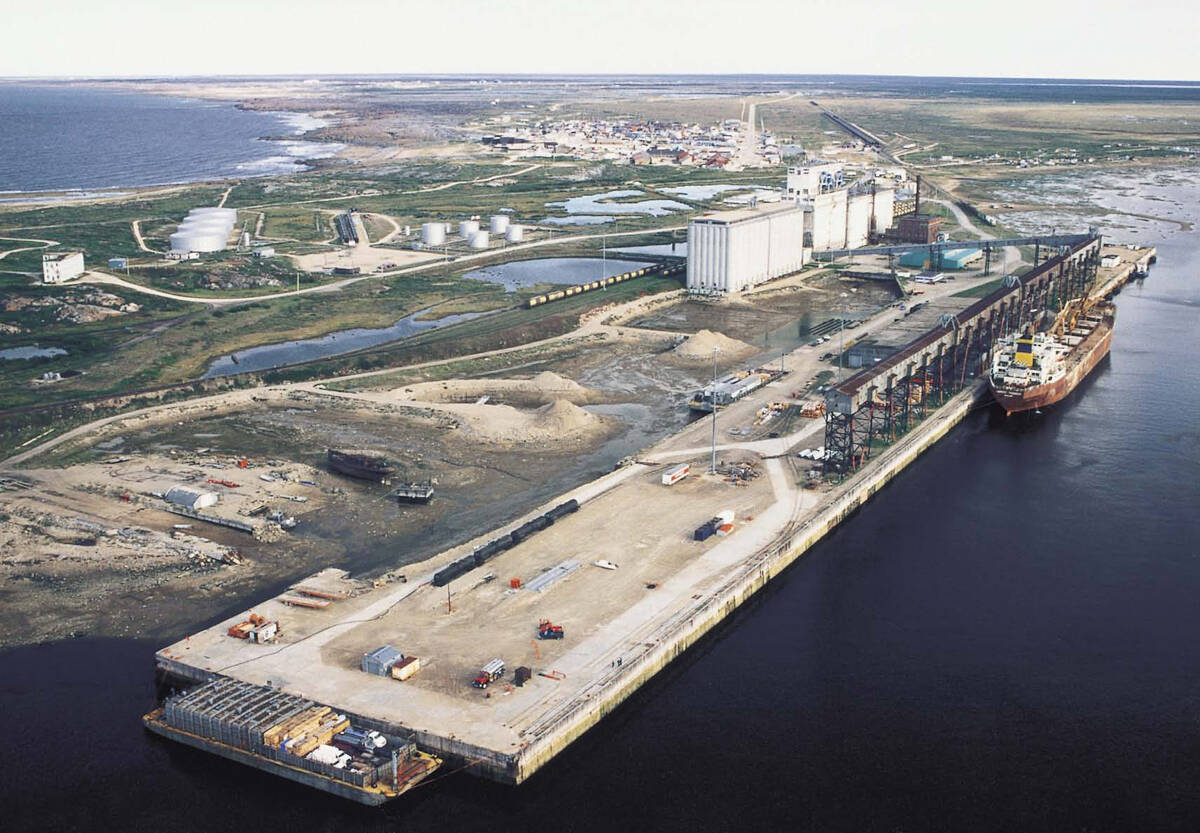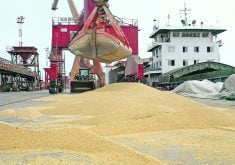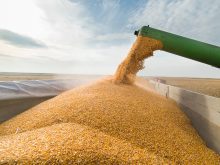It is rare when feedgrain prices in Western Canada are rising while American corn prices are falling.
But the dry soils of the western Prairies have feed buyers concerned and bidding up prices.
From May 17 to May 28, the Lethbridge cash barley market rallied $10 to $148 a tonne. This reflects 48 pound per bushel barley in 100 tonne lots. Feed wheat similarly rose.
Meanwhile, American corn futures fell last week after rain bathed dry eastern corn belt areas and on reports of disappointing export sales.
This divergence of price movement between Canadian feed grains and American corn has made it more attractive in some areas to import corn.
Read Also

Defence investments could benefit agriculture
A bump in Canada’s NATO spending commitments could lead to infrastructure investments that would benefit rural areas
One wonders what would be happening to domestic feedgrain prices if the tariff on United States corn was still on.
Meanwhile, oat prices are creeping up because of soggy seeding conditions in Manitoba.
StatCom Ltd. (www.statcom-on-line.com) estimates that as of May 25, only 20 percent of Manitoba’s oats had been seeded, compared to 98 percent last year.
Late seeding increases the potential for lower yields and frost damage, impacting milling quality supplies.
While the weather has improved in key corn areas of the United States, it has deteriorated elsewhere.
On page 15 is a story about Australia’s dry soils.
There is also a regional drought in northern China. It is affecting local production, but so far, Chinese authorities do not expect national production to be hurt as much as it was last year when it dropped by nine percent.
The dryness also helped draw attention to the latest forecast by Lester Brown, formerly of the Worldwatch Institute but now of the Earth Policy Institute.
Brown has for years been warning of impending disaster in China’s ability to feed itself.
While his predictions of widespread famine have yet to come true, his latest report is interesting.
It is located on the web at www.earth-policy.org or by writing to Earth Policy Institute, 1350 Connecticut Ave. NW , Washington D.C., USA, 20036.
Brown notes that all urban construction in China must by law be offset by “creation” of new agricultural land. So coastal provinces are paying northwestern provinces to plow grazing land.
The result is terrible wind erosion and desertification.














